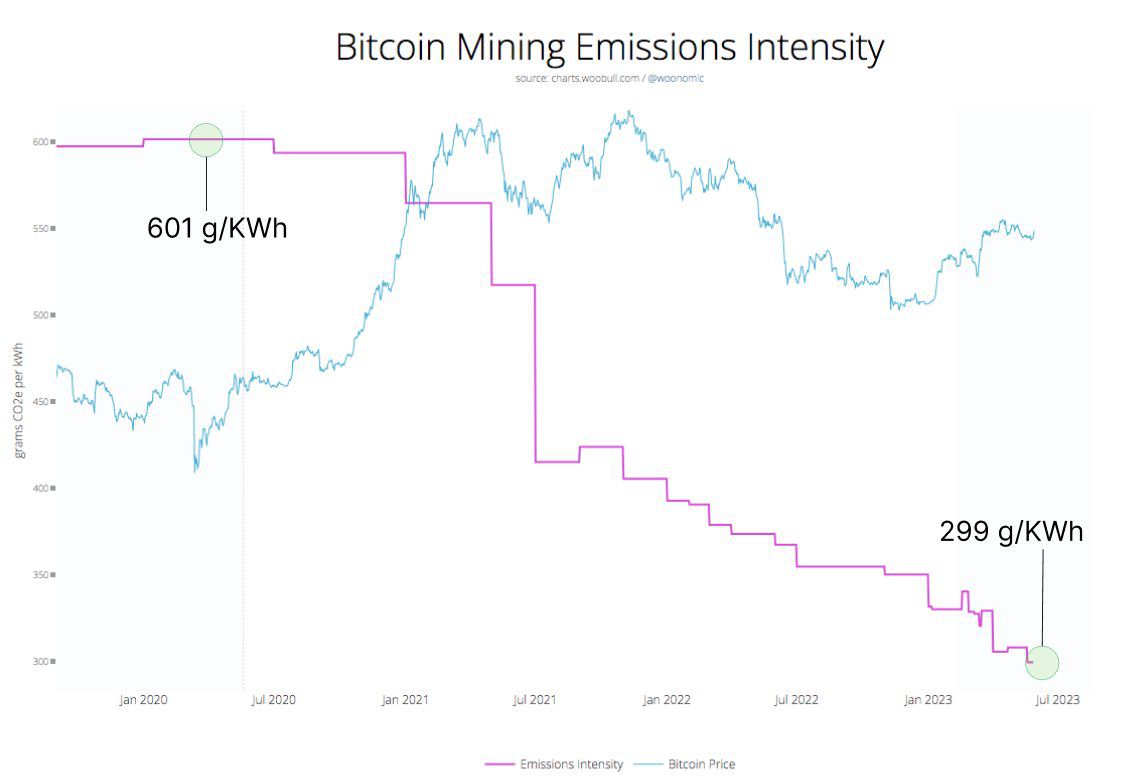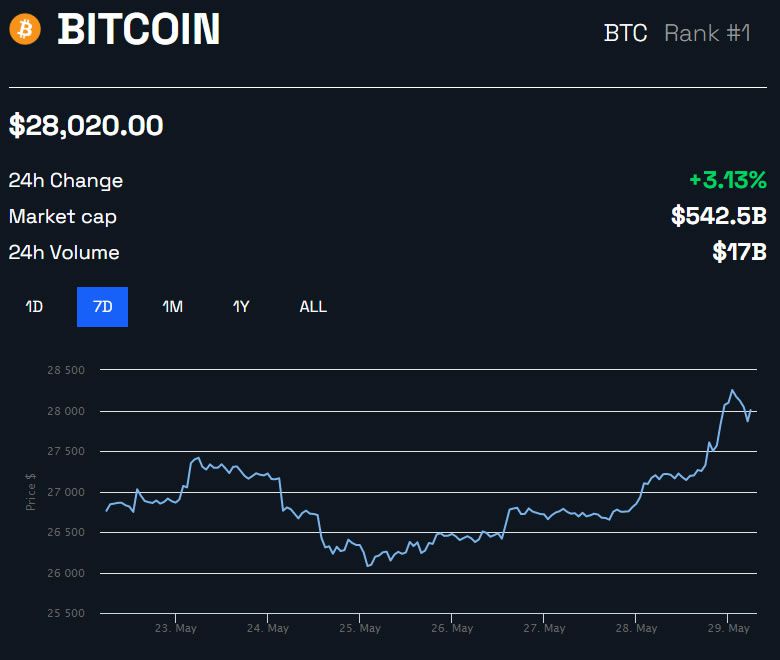Bitcoin mining is becoming more environmentally friendly and sustainable, with emissions intensity continuing to decline.
Bitcoin mining emissions intensity is at its lowest ever level, dropping below 300g/KWh for the first time.
On May 29, climate technology venture investor and activist Daniel Batten posted his findings. He noted that the Bitcoin network has taken just over three years to half its emission intensity.
“No other industry is reducing its emission intensity at such a rate.”

Sustainable Bitcoin Mining
Bitcoin mining now produces fewer energy emissions when compared to its energy consumption.
Furthermore, the fall is due to more sustainable energy sources being used to mine Bitcoin. Mining hardware has also become much more efficient, which would also result in a decline in emissions intensity.
Bitcoin mining operators have flocked to countries with sustainable energy, such as those in Scandinavia. On May 29, researcher Jaran Mellerud said that electricity prices in the Nordic nations remain negative.
“Bitcoin miners in Finland and the northern parts of Norway and Sweden keep being paid to consume electricity.”
Furthermore, the Bitcoin network hash rate is close to peak levels which is not so good for miners. According to Blockchain.com data, the total hash rate is currently 365 EH/s (exahashes per second).
Network difficulty, which measures the competition between miners, is also at a peak level of 49T.
These metrics have an impact on profitability which is currently low. According to the Hash Rate Index, the hash price is currently $0.075 per terahash per second per day.
It spiked to $0.128 during the memecoin minting madness earlier this month but has since fallen back. Furthermore, the hash price has declined 44% since the same time last year. This is due to declining BTC prices and increasing energy costs.
BTC Price Outlook
Bitcoin prices have been given a boost today. The asset gained 3.1% to top $28,000 for the first time in a fortnight. However, BTC prices have been range-bound since the middle of March.

The move has been driven by a U.S. government deal on the debt ceiling. President Joe Biden and Republican Kevin McCarthy agreed to suspend the federal government’s $31.4 trillion debt ceiling over the weekend.
The debt limit is a legislative cap on the national debt the Treasury can incur. It has now been lifted, which means America’s national debt will increase.
 beincrypto.com
beincrypto.com
